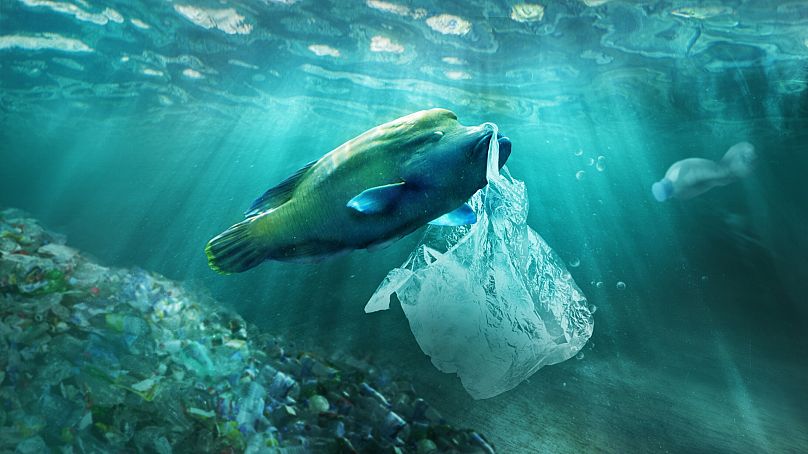50% of ocean pollution is already caused by single-use plastics.
Today is World Oceans Day, but it’s a different state of affairs this year.
 ADVERTISEMENT
ADVERTISEMENT
 ADVERTISEMENT
ADVERTISEMENT
Every year, the United Nations celebration takes place on the 8th of June, to remind us how crucial it is that we protect and restore our oceans. It was first celebrated in 1992 following a historic UN environmental conference in Rio de Janeiro.
Much of the work surrounding ocean conservation involves educating the public on the devastating effects of plastic pollution. Land-based activity accounts for 80 per cent of ocean pollution, with 50 per cent as a direct result of single-use plastics. Now, we must act to avoid making the situation worse, say experts from environmental non-profit City to Sea in the UK.
But in 2020, we’re in the midst of a global health pandemic and circumstances have changed. Discussions around single-use plastic have inevitably taken a back seat as we focus on preventing the COVID-19 virus from spreading. While recovery is undoubtedly our most pressing priority, it’s important to remember that the majority of personal protective equipment (PPE), such as masks and gloves, are made of plastic.
From plankton to pilot whales, algae to albatross, no marine life is untouched by the effects of plastic waste. 100,000 marine mammals and turtles and 1 million sea birds are killed by plastic pollution annually, according to the charity.
In medical settings, PPE tends to be single-use, meaning it is thrown away almost immediately and ends up clogging our waterways, before landing in the ocean and harming marine life.
“Plastics have an important role to play in this pandemic, protecting those working on the front lines in the form of gloves, masks and other medical equipment,” reports Ocean Conservancy. “But it is worrying that some members of the plastics industry are taking advantage of a climate of fear and uncertainty to actively suspend or roll back hard-won environmental measures to reduce plastic pollution.”
A sustainable recovery
In a recent UK survey, City to Sea found that 36 per cent of Brits feel pushed into using more single-use plastic at the moment. However, the research also revealed 70 per cent have not changed their feelings about plastic pollution, despite COVID-19. Worry over the amount of plastic in the oceans remains widespread, with all participants confirming little or no change in their level of concern.
Award-winning author and founder of City to Sea, Natalie Fee, spoke to Euronews Living about how to safely take steps towards minimising the use of single-use plastics during the current crisis.
“Whilst public safety must remain our priority, it doesn’t have to come at the cost of our planet. Our survey shows that one third of consumers feel pressured into using – not choosing – single-use and we feel our governments should be advocating and funding a more sustainable recovery,” she says.
In the meantime, “The World Health Organisation is clear that good hand-washing and hand hygiene is the best option and reusable masks, which can be bought or made, and washed at home offer a sustainable solution,” Fee concludes.
Ocean View is one such company providing eco-friendly, reusable face masks. They are made of 100% cotton and are anti-viral, anti-bacterial and anti-microbial. Each 3-layer anti-epiodemic mask is CE Certified as a Class 1 medical device, which is recognised by the WHO medical mask guidelines.











